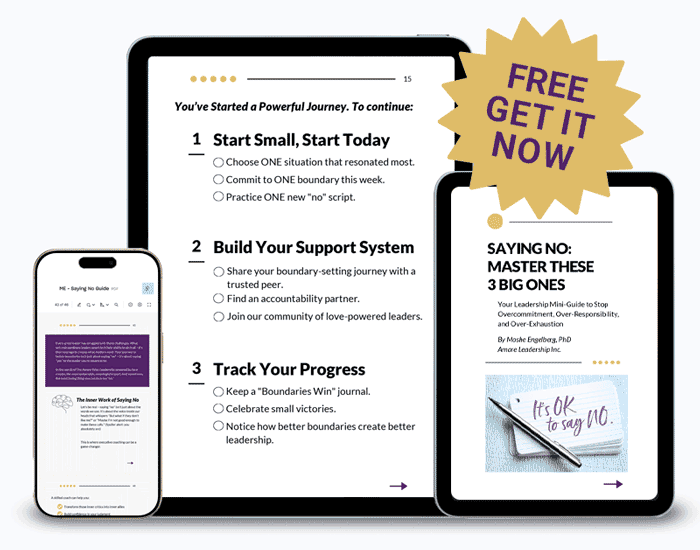Managing Opposing Truths: A Both/And Perspective
One of the biggest challenges for leaders today is dealing with conflicting viewpoints. It’s easy to think only one point of view can be right, requiring an “either/or” choice. In today’s complex business world, it can also create a false dichotomy. The good news is that leaders can master the remarkable human capacity of holding two seemingly opposing truths at the same time, making a “both/and” choice.
For example, you might look at the last two years of Covid as causing sickness and death, wreaking havoc with the economy, and turning many lives upside down. You might also look at Covid as the wake-up call society so desperately needed, creating an unprecedented opportunity to reset priorities, and make big changes. It is an expansive and compassionate approach that finds valuable truth in both viewpoints.
Ask yourself:
- Can you consider conflicting viewpoints without rushing to judgment?
- Do you see the link between “both/and” and compassionate leadership?
- Are you willing to help your team learn to live with seemingly opposing perspectives?
Manage Conflicting Points of View with a “Both/And” Approach: 5 Amare Techniques
1. Own your reactions. Notice your internal responses to conflicting viewpoints, e.g. becoming impatient, shutting others down, or never deciding. Take a breath, then experiment with alternatives.
2. Use inclusive language. Allow for ambiguity, nuance, and complexity with language like “this is complicated,” “let’s explore all our options,” and “maybe this can be true, too.”
3. Build “both/and” skills. Empower your people by practicing active listening, brainstorming, structured ideation, and mediation. Get professional support if needed.
4. Call out “both/and” successes. List and share three examples of when your team innovated better as a result of a “both/and” perspective, and when you missed opportunities from a premature “either/or” choice.
5. Clarify expectations and boundaries. Let people know when exploring possibilities is done and choices need to be made. Integrate the best of all the possibilities explored into final decisions.
Acknowledging the truth in seemingly opposing points of view enables you to better deal with complexity, build tolerance, and create unity. “Both/and” is a powerful management skill for leaders to practice that opens up many more possibilities.
Today’s Amare Wave Wednesday Quote
“It’s all in the mind.”
—George Harrison
You Might Also Like:
3 Keys to Becoming a Generous Leader
4 Steps Toward Great Leadership That Make the Most of You
6 Ways to Increase Your Self-Awareness in Leadership and Business
7 Powerful Techniques for Greater Clarity
Leaders: Say YES to an Abundance Mindset & NO to a Scarcity Mindset


